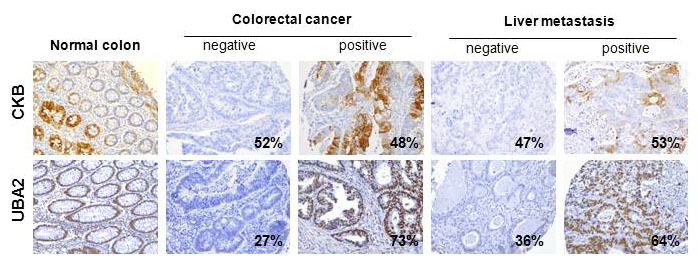
Cancer metastasis is the major cause of cancer-associated death. Despite intensive research in this field, regulatory mechanisms that control metastatic spread and organ colonization are far from being understood.
A recent work lead by the group of Dr. Ignacio Casal, PI at CIB, in collaboration with the Hospital Clínico (Madrid) and the Vall d’Hebron Institut de Recerca (Barcelona), and published in The Journal of Pathology uses a multi-omic approach to investigate the role of microRNAs (miRNAs) involved in colorectal cancer metastasis and their mechanism of action.
This study identified three miRNAs that promoted metastatic properties in vitro and an increased liver colonization in vivo. Remarkably, the different miRNAs targeted the same set of proteins, which included down regulation of CKB and UBA2, which behaved as metastasis suppressors in colorectal cancer. Both miRNAs and target proteins demonstrate to be efficient markers for poor prognosis for colorectal cancer patients. Additionally, our simultaneous work with different miRNAs gave us a broader vision of the tremendous overlap in proteins targeted by different miRNAs and highlighted the low predictive value of in silico methods. The capacity of distinct miRNAs to regulate the same mRNAs boosts the capacity of miRNAs to regulate cancer metastasis and underscores the necessity of targeting multiple miRNAs for effective cancer therapy.
Reference: Combined miRNA profiling and proteomics demonstrates that different miRNAs target a common set of proteins to promote colorectal cancer metastasis. Sofía Torres, Irene García-Palmero, Rubén A. Bartolomé, María Jesús Fernández-Aceñero, Elena Molina, Eva Calviño, Miguel F. Segura and J. Ignacio Casal. J. Pathol. (2017) doi: 10.1002/path.4874

